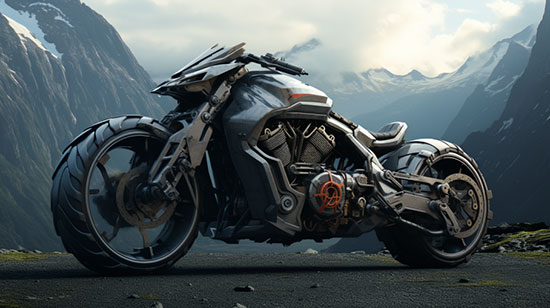the world of motorcycles, catalytic converters have long been an essential component for reducing harmful emissions.
However, there is a growing interest in motorcycles without catalytic.
Additionally, we provide insights into the environmental impact, performance gains, and legal implications of using motorcycles without catalytic converters.
Contents
Understanding Catalytic Converters: The Basics
Before delving into the details of motorcycles without catalytic converters, let’s first understand the role of these devices in a motorcycle’s exhaust system.
Function and Purpose
A catalytic converter is a crucial component in the exhaust system of motorcycles, responsible for converting harmful pollutants into less harmful gases.
It does so through a series of chemical reactions facilitated by catalysts, such as platinum, palladium, and rhodium.
The Case for Motorcycles Without Catalytic Converters
There are several reasons why motorcycle enthusiasts might consider removing or bypassing the catalytic converter. Some of the key benefits include:
Improved Performance
Motorcycles without catalytic converters often exhibit better performance, particularly in terms of power output and throttle response.
By eliminating the restrictive nature of the converter, exhaust gases flow more freely, leading to a more efficient engine operation.
Weight Reduction
Catalytic converters can add considerable weight to a motorcycle.
Removing the device can result in a lighter motorcycle, which in turn improves handling and agility.
Enhanced Exhaust Sound
Many riders prefer the louder and more aggressive exhaust note that comes with removing the catalytic converter.
This modification can produce a more satisfying riding experience for some enthusiasts.
The Downsides of Motorcycles Without Catalytic Converters
Despite the potential advantages, there are also several drawbacks to consider when contemplating the removal of a motorcycle’s catalytic converter.
Environmental Impact
Catalytic converters play a vital role in reducing air pollution by converting harmful emissions into less harmful substances.
Removing the converter can significantly increase the amount of pollutants released into the atmosphere, contributing to poor air quality and exacerbating health problems.
Legal Implications
In many countries and jurisdictions, it is illegal to remove or bypass a catalytic converter on a motorcycle.
Doing so can result in hefty fines, penalties, and even the confiscation of the vehicle.
Warranty and Insurance Issues
Removing a catalytic converter might void the motorcycle’s warranty, as manufacturers typically require that the exhaust system remain unmodified.
Additionally, insurance companies may not cover damages resulting from modifications such as catalytic converter removal.
Conclusion
While motorcycles without catalytic converters might offer certain performance benefits, it is crucial to weigh these advantages against the environmental, legal, and warranty-related consequences.
Before making any modifications, consult local regulations and consider the long-term impact on both the motorcycle and the environment.






